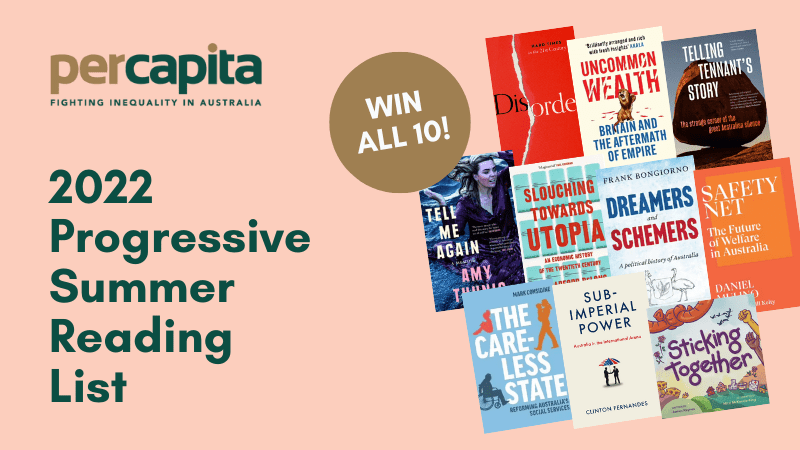
It’s time for the annual Per Capita Progressive Summer Reading List! Here are our top 10 books from this year to keep you entertained over the summer or find their way under the Christmas tree.
And you have a chance to win them all! To go into the draw to win all 10 books just donate $10 to our summer fundraiser here by 31 December. Want extra entries? Every $10 donated will get you an extra entry.
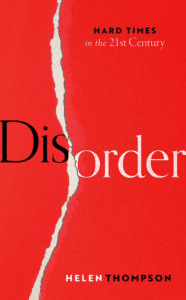 Disorder: Hard times in the 21st Century
Disorder: Hard times in the 21st Century
Helen Thompson
Disorder is an interesting analysis of why the western world is in such a mess, through the lenses of energy, finance and the decline of liberal politics. It also examines the effect of the COVID-19 pandemic on global relations, as well as the outcomes of the 2007-08 Global Financial Crisis.
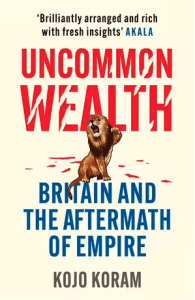 Uncommon Wealth: Britain and the aftermath of Empire
Uncommon Wealth: Britain and the aftermath of Empire
Kojo Koram
An economic and sociological reassessment of the British Empire, and its materialist origins and motivations. Koram shows how the British objective of economic extraction led them to establish deeply undemocratic economic structures still present in global capitalism. He uses this great heuristic of the “colonial boomerang” to explain why all those tropes the brits used to justify colonisation – people being lazy, not willing to work hard, unable to stand on their own two feet etc – are now being used by the British elite against the working poor of the UK.
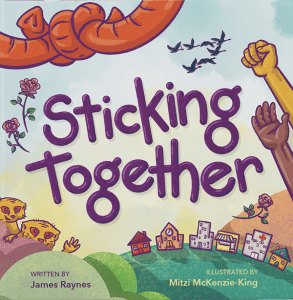 Sticking Together
Sticking Together
James Raynes and Mitzi McKenzie-King
Mitzi McKenzie-King and James Raynes’ Sticking Together, is a delightfully colourful and heart-warming children’s book with a wonderful and progressive message. On a journey through the animal kingdom, we see collectivism is all around: penguins, otters, vampire bats and more, cooperating, looking out for each other and sharing the load. This book is sure to be a bedtime favourite.
‘It doesn’t matter if you’re clothed
in skin or fur or feather,
everyone is better off
when we stick together’
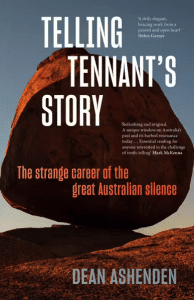 Telling Tennant’s Story: The strange career of the great Australian silence
Telling Tennant’s Story: The strange career of the great Australian silence
Dean Ashenden
A lucid, succinct, eminently readable account of the reasons why Australia as a nation continues to struggle with how to acknowledge and move beyond its past. Travelling north to visit Tennant Creek for the first time since leaving it as a boy in 1955, Ashenden is provoked to question the absence of shared histories on the monuments and tourist information boards along the route. Mostly, the signs record pioneer history, from which the Indigenous people are absent. When the Indigenous story is invoked, it records traditional practices and does not mention white people. ‘How did they get from then to now?’ he muses.
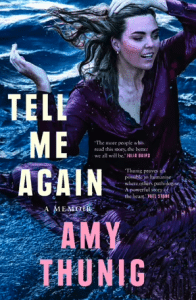 Tell Me Again: A memoir
Tell Me Again: A memoir
Amy Thunig
In her memoir Tell Me Again, Amy Thunig, a Gomeroi/Gamilaroi/Kamilaroi yinarr (woman), recounts her experience growing up with parents who struggled with addiction and incarceration resulting from endemic poverty and intergenerational trauma. As an Aboriginal woman, Thunig demonstrates that the observer’s view of Aboriginal life and culture can be very different from the actual story.
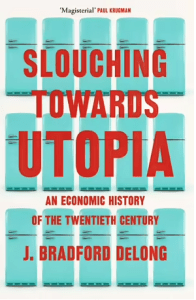 Slouching Towards Utopia: An economic history of the Twentieth Century
Slouching Towards Utopia: An economic history of the Twentieth Century
J. Bradford de Long
Economist Brad de Long outlines the world’s economic progress during the years from 1870 – 2010. Humanity went from dire poverty, with a very slow rate of invention and social progress to doubling our technological capabilities with every generation. Yet this explosion of technological ability and wealth has not always been used for good – along the way we have created climate change and economic inequality. De Long reflects on how humanity has not exactly “marched” in the right direction so much as “slouched” towards social progress.
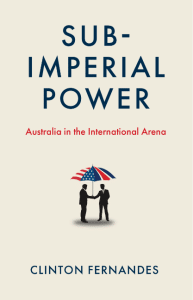 Sub-imperial Power: Australia in the International Arena
Sub-imperial Power: Australia in the International Arena
Clinton Fernandes
In 1986, Australia cut its final legal tie to the United Kingdom. Today, it’s a sovereign State in a post-colonial world, fully emancipated from the British Empire. But there’s a new King in town, that has been pulling the string for some time… and it’s not Charles III. In this deeply insightful work, Clinton Fernandes debunks the great myth of Australia’s independence, instead examining it as a sub-imperial power, using foreign policy to gesture eager participation in the US-led imperial order. The pace is fast, the topic vast, but the book is captivating and incredibly engaging. Start it on a lazy Sunday morning, you won’t be able to put it down.
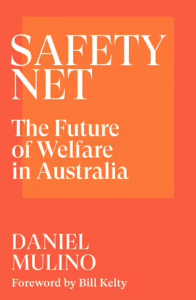 Safety Net: The Future of Welfare in Australia
Safety Net: The Future of Welfare in Australia
Daniel Mulino
A deep reflection on the contemporary management of social risk in democratic systems. This thoughtful and challenging book is essential reading for anyone concerned with the task of ensuring our social safety net is sustainable and adapted to the modern era.
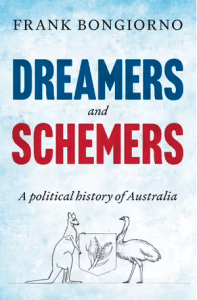 Dreamers and Schemers: A political history of Australia
Dreamers and Schemers: A political history of Australia
Frank Bongiorno
Historian Frank Bongiorno’s political history of Australia is remarkably comprehensive, covering not only federal politics but also politics at the state/colony level. Beginning pre-settlement with Indigenous systems, Bongiorno continues through communities of emancipated convicts, federation, two world wars, the later twentieth Century and right up to the 2022 election. This engaging account not only discusses politicians and leaders but also the agitators and outsiders who also shaped Australia.
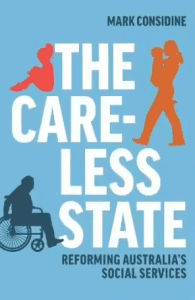 The Careless State: Reforming Australia’s Social Services
The Careless State: Reforming Australia’s Social Services
Mark Considine
It’s hard to think of a more timely book than Mark Considine’s The Careless State. With so many of our essential services in crisis after the impact of COVID-19, Considine deftly traces the source of multiple failures in our systems of social care to the reforms of the 1980s and 90s, which undermined and outsourced the responsibility of the state for our collective wellbeing under the guise of ‘consumer choice’. This is an accessible and sobering work of social policy analysis that is essential to understanding where we have gone wrong, and what we can do to restore the integrity and utility of essential social services in Australia.
